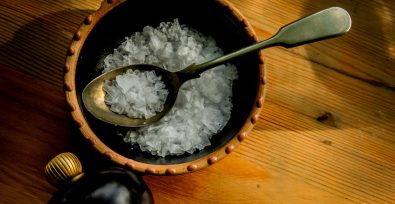In a landmark first, the United States has blocked all imports from Taepyung, a major South Korean salt farm. Despite decades of documented abuse, the ban makes the US the first trade partner to take punitive action against the rural salt farms, reports MSN. South Korean officials also stated that this was the first time a South Korean company had their imports suspended by a foreign government over concerns of forced labor.
A decade of exploitation due to government disinterest
The rural salt farms off the southwest coast of South Korea have a reputation for “widespread” use of forced labor. First exposed in 2014, an investigation found dozens, many with disabilities, were victims of modern slavery at the farms. Lawyer Choi Jung Kyu is part of a group of attorneys and activists who petitioned US Customs back in 2022, asking them to act against South Korean salt farms. Three years later, they hope that the US ban will step up pressure on the South Korean government to take more effective steps to eliminate slavery.
“Since the exposure of the problem in 2014, the courts have recognized the legal responsibility of the national government and local governments, but forced labor among salt farm workers has not been eradicated.”
The recent investigation found Taepyung was still engaging in a whole laundry list of modern slavery red flags. They include “abuse of vulnerability, deception, restriction of movement, retention of identity documents, abusive living and working conditions, intimidation and threats, physical violence, debt bondage, withholding of wages, and excessive overtime.”
Stronger actions needed to prevent the ongoing abuse
Upon learning of the new US import ban, Choi’s law firm and other groups representing victims of modern slavery on salt farms issued a statement to the South Korean government. The group statement urges the government to immediately take stronger action to prevent ongoing abuse. A major suggestion from the group is harsher punishments for trafficking and forced labor crimes. The group also pointed to the lack of support measures in place for victims. The absence of survivor services like employment and housing assistance means some end up returning to the farms. And that means a return to exploitation.
Speaking about the ban of Taepyung’s imports to the US, Choi stated:
“Our hope is that the export ban would force companies to strengthen due diligence over supply chains and lead to the elimination of human rights violations.”
South Korea’s Foreign Ministry said in a statement that relevant government agencies have been taking steps to address labor practices at Taepyung since 2021. According to their own assessment, Taepyung no longer produces any salt using forced labor. However, the ministry provided no evidence to back up its contrasting claims. But it did say it plans to “actively engage” in discussions with the US officials over the matter.
Put the pressure on by signing our petition for all governments to pass mandatory human rights due diligence laws to put people before profit.







Freedom United is interested in hearing from our community and welcomes relevant, informed comments, advice, and insights that advance the conversation around our campaigns and advocacy. We value inclusivity and respect within our community. To be approved, your comments should be civil.